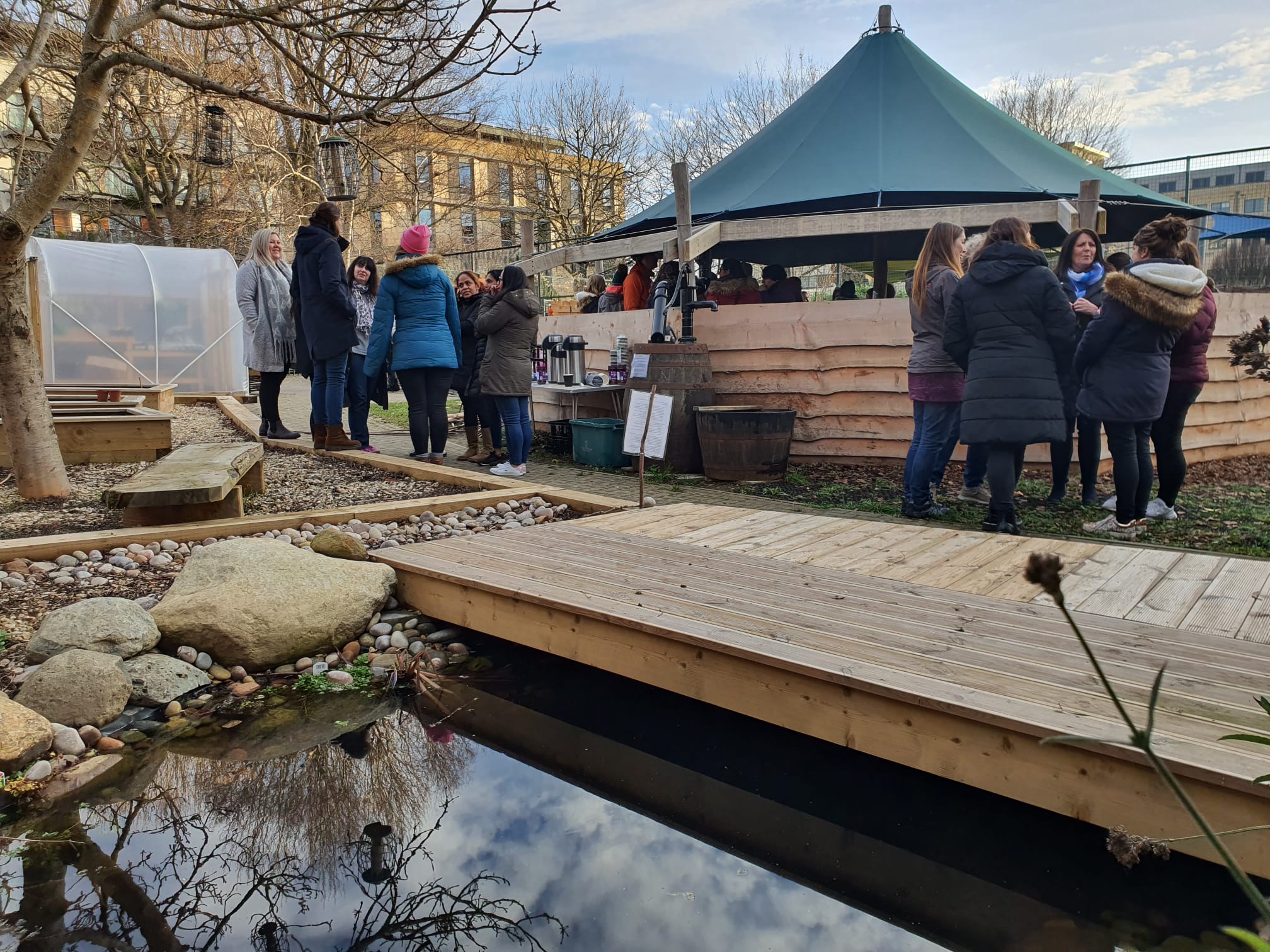Why Eco Hubs are the future?
Eco Hubs are the future of outdoor learning spaces in schools. There, we said it! And here’s why. In the last year or two SOuL has installed several Eco Hubs of various sizes and styles in schools, and they make so much sense. Not only does an Eco Hub act as a base for outdoor learning, it teaches pupils important lessons about sustainability and environmental stewardship.
So, what is an Eco Hub?
An Eco Hub is an area dedicated to teaching, learning and connecting to nature with an emphasis on sustainability.
Our Eco Hubs are designed to provide areas within schools that connect with nature, whilst also having a sustainable ethos that is powerful in its own right. They also provide rich learning for your students, calm areas for teaching and social interaction, and even intervention spaces.
At the heart of the Hub is a teaching space. Often these consist of our canopy classrooms with modular seating with a fire pit inside.

Solid sustainability credentials
We can attach guttering to canopy classrooms so that rainwater can be harvested. Use the rainwater to irrigate plants, herbs and vegetables (grown in purpose built raised beds and planters)and add them to the menu in the school kitchen.
We can also attach a solar panel to provide power for lights inside the canopy and other ancillary items such as speakers, projectors, wifi networks etc. Use them to charge devices when technology is required for some teaching outdoors.
Beyond this we create or enhance habitats such as ponds, bird feeders and bat boxes, as well as log and stone piles for bugs and invertebrates. Wormeries are also an excellent addition to eco hubs to supply nutrient rich material for the soil in the raised beds. Composting bins help to do the same job of course.
 Finally, we take time to consider strategic planting and rewilding to attract insects, birds and small mammals. We often plan hazel and willow to enable this material to be used for construction and craft work in the area. Fruit trees and native species hedges add to the foraging and connection with nature’s bounty!
Finally, we take time to consider strategic planting and rewilding to attract insects, birds and small mammals. We often plan hazel and willow to enable this material to be used for construction and craft work in the area. Fruit trees and native species hedges add to the foraging and connection with nature’s bounty!
We work in conjunction with leadership, teachers and pupils at the school. It’s this input that makes each Eco Hub unique and work in each different school. If you are thinking of adding a space like this or adding to your existing areas at your school, it is well worth a chat with us, send us a message.
Think global, act local
Children relate to this idea and it helps to manage their feelings and calm eco anxiety. Show your pupils this simple video to break down the concept. There is lots of evidence to support the idea that, if children spend time in and learn to care for natural spaces and habitats, this outlook can easily be extended to global sustainability thinking in adulthood.
When there’s a dedicated space at school for pupils to learn, grow and make a difference they flourish. They get all the powerful benefits of outdoor learning with the added bonus of making a difference to the environment. We all have a responsibility to reduce our impact on the planet and this is one very real step that schools can take. It doesn’t solve everything, but it is a solid start.
Build an Eco Hub
You can create an eco hub tomorrow, there’s no need to wait. Section off a corner of the school and add in some simple seating. Perhaps, plant some wildflowers or other seeds. Start small and watch it grow over time. Add to it bit by bit to make it the space you want. Involve the pupils, get their ideas and put them to work creating materials and preparing the space. Train teachers to go outside and use the eco hub for their everyday lessons and special events. Build confidence teaching outside by holding an INSET day out there.
Contact us for ideas and support, we are here to help.

